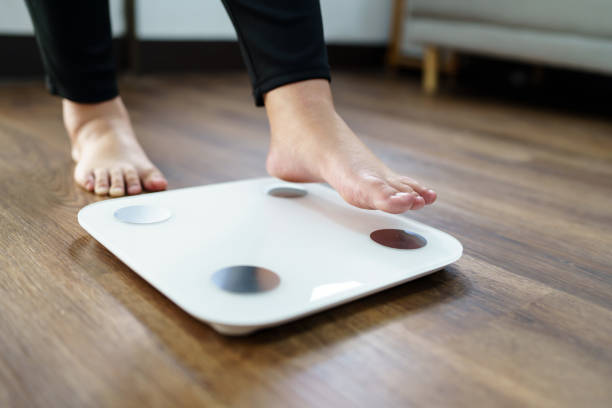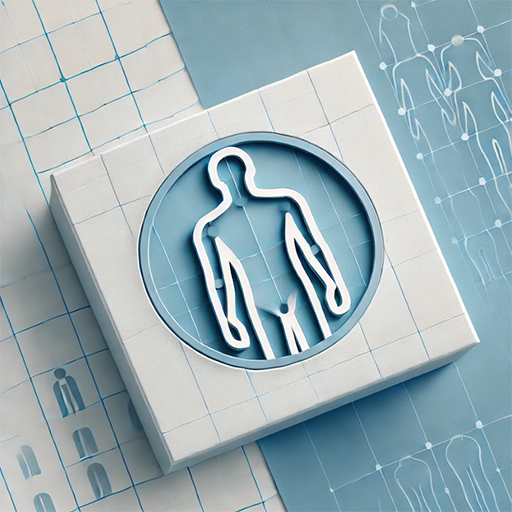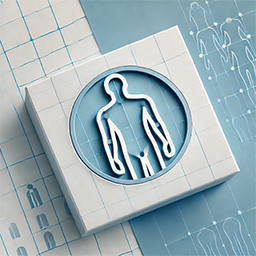Introduction
When people think about weight loss, the main focus is usually on getting slimmer, having more energy, and reducing the risk of health issues like heart disease and diabetes. However, there’s another powerful benefit that often gets overlooked—losing weight can greatly improve your digestion and gut health.
Your gut plays a critical role in overall wellness. It’s not only responsible for breaking down food but also supports your immune system, regulates your mood, and even affects your mental clarity. A healthy gut means better digestion, more energy, and a stronger immune system. When your gut is balanced and functioning well, it helps your entire body perform at its best.
In this blog post, we’ll dive into how losing weight can enhance digestion, promote a stronger gut microbiome, and improve your overall well-being, making you feel healthier from the inside out.
Table of Contents:
- How Weight Loss Affects Your Gut Health
- The Link Between Gut Health and Digestion
- How Weight Loss Improves Gut Function
- The Impact of Weight Loss on Gut Bacteria
- Tips for Weight Loss to Boost Digestion and Gut Health
- Common Digestive Issues That Weight Loss Can Help Alleviate
- Conclusion: Start Your Journey to Better Gut Health Today

How Weight Loss Affects Your Gut Health
Losing weight can do more than change how you look—it can also improve your gut health in powerful ways. Studies show that carrying extra weight, especially belly fat, can upset the balance of bacteria in your gut. This imbalance in your gut microbiome may lead to issues like bloating, inflammation, and digestive conditions such as irritable bowel syndrome (IBS).
Healthy weight loss through a balanced diet and regular exercise can reduce visceral fat—the harmful fat that surrounds your organs. Visceral fat is known to trigger inflammation in the gut and slow down digestion. By lowering this type of fat, your digestive system can work more smoothly, and your gut bacteria can shift back into a healthier balance.
A well-balanced gut microbiome not only helps your body digest food more efficiently but also boosts your immune system and overall well-being.
The Link Between Gut Health and Digestion
Your gut plays a key role in the digestive process. Digestion starts in the mouth and continues through the stomach, small intestine, and large intestine. The bacteria in your gut help break down food, absorb important nutrients, and protect your body from harmful germs.
When your gut isn’t healthy, digestion can slow down or become unbalanced. This can lead to common issues like bloating, gas, constipation, or diarrhea. The good news? Losing weight can support better digestion and a healthier gut in several ways:
- Improved Nutrient Absorption: A well-balanced gut helps your body take in more nutrients from the foods you eat. This boosts your energy and supports overall health.
- Balanced Gut Bacteria: Weight loss—especially from a healthy diet—can promote good bacteria and reduce the harmful ones, keeping your gut microbiome in balance.
- Reduced Inflammation: Shedding extra pounds can lower inflammation in the gut, making digestion smoother and more comfortable.
How Weight Loss Improves Gut Function
Losing weight can lower your risk of digestive problems and help your gut work more smoothly in several important ways:
- Relieves Pressure on the Digestive System: Extra body weight puts added strain on your stomach and intestines, making it harder for them to process food properly. When losing weight, you take that pressure off, giving your digestive system the space and support it needs to function better.
- Reduces Risk of Acid Reflux and GERD: Belly fat can press on your stomach, pushing acid up into your esophagus. This leads to symptoms like heartburn and acid reflux, also known as GERD. Losing weight can ease that pressure and reduce or even eliminate those uncomfortable symptoms.
- Promotes Regular Bowel Movements: Healthy weight loss usually includes eating more fiber-rich foods like fruits, veggies, and whole grains. These foods help keep things moving in your digestive tract, making it easier to have regular, healthy bowel movements and prevent constipation.

The Impact of Weight Loss on Gut Bacteria
Your gut is home to trillions of bacteria that are essential for digestion, immunity, and overall well-being. These bacteria work as a team to keep your body healthy. Their balance can be affected by what you eat, how active you are, and how much you weigh. Studies show that losing weight can improve your gut health by changing the types and amounts of bacteria in your digestive system in the following ways:
- Boosting Good Bacteria: Healthy weight loss, especially through a nutritious diet, can increase helpful bacteria like Bifidobacterium and Lactobacillus. These friendly bacteria aid digestion, support your immune system, and help reduce problems like bloating or upset stomach.
- Lowering Harmful Bacteria: Being overweight and eating poorly can feed bad bacteria in your gut. When losing weight and eat better, you reduce the harmful bacteria, allowing good ones to thrive. This creates a stronger and more balanced gut microbiome.
- Supporting the Gut-Brain Connection: Your gut and brain talk to each other through the gut-brain axis. A healthy gut, supported by weight loss and better eating habits, can improve your mood, lower stress, and support mental clarity. A balanced gut means a healthier mind and body.
Tips for Weight Loss to Boost Digestion and Gut Health
If you’re ready to lose weight and give your gut a healthy boost, here are some easy and effective tips to help you get started:
- Eat More Fiber-Rich Foods: Fiber is key to good digestion. It helps move food through your system and supports regular bowel movements. Add more whole grains, fruits, vegetables, beans, and nuts to your meals. These foods help feed the good bacteria in your gut and improve digestion.
- Drink Plenty of Water: Staying hydrated keeps your digestive system running smoothly. Water helps soften your stool and supports the health of your gut lining. Aim to drink water throughout the day to prevent constipation and help your body function at its best.
- Add Probiotics and Prebiotics: Probiotics are live, healthy bacteria that help your gut. Prebiotics are types of fiber that feed these good bacteria. Foods like yogurt, kefir, kimchi, and sauerkraut are rich in probiotics. Garlic, onions, bananas, and oats are good sources of prebiotics.
- Get Moving with Regular Exercise: Physical activity helps your digestive system work better by improving how food moves through your gut. Exercise also supports the growth of good gut bacteria. Try walking, biking, or any movement you enjoy most days of the week.
- Cut Back on Processed Foods: Processed and sugary foods can harm your gut and make it harder to lose weight. Choose fresh, whole foods instead—like lean proteins, colorful veggies, and healthy fats—to support a balanced gut and better digestion.
- Manage Your Stress Levels: Too much stress can upset your stomach and gut health. Taking time to relax is just as important as what you eat. Try calming habits like yoga, deep breathing, or meditation to lower stress and keep your gut healthy.
Common Digestive Issues That Weight Loss Can Help Alleviate
Losing weight can do more than improve your appearance—it can also help relieve many common digestive problems, such as:
- Bloating: Carrying extra belly fat can add pressure on your stomach and intestines, leading to bloating and discomfort. Weight loss helps reduce this pressure and can make you feel lighter and less bloated.
- Heartburn and Acid Reflux: Extra weight, especially around the midsection, can push on your stomach and cause acid to flow back into the esophagus. This leads to heartburn and GERD (gastroesophageal reflux disease). Losing weight can help reduce this pressure and lower your chances of acid reflux.
- Constipation: Many people eat more fiber when trying to lose weight, thanks to healthy foods like fruits, vegetables, and whole grains. A fiber-rich diet helps food move through your digestive system and can make bowel movements more regular and easier.
- Irritable Bowel Syndrome (IBS): IBS can cause pain, gas, bloating, and changes in bowel habits. A healthier diet and weight loss may ease these symptoms by improving digestion and reducing inflammation in the gut.

Conclusion: Start Your Journey to Better Gut Health Today
Losing weight isn’t just about improving your appearance—it’s also a great way to boost your digestion and gut health. Shedding those extra pounds can reduce inflammation, balance the bacteria in your gut, and help your digestive system work more efficiently. If you often deal with bloating, constipation, or stomach discomfort, weight loss might be the key to feeling better and enhancing your overall health.
Starting on the path to a healthier gut doesn’t need to be overwhelming. Simple, consistent changes to your daily habits can make a big difference over time. Focus on eating a balanced, fiber-rich diet, drink plenty of water, and include regular physical activity in your routine. These small adjustments can significantly support your digestion and help your gut flourish.
Have you experienced positive changes in your digestion after losing weight or making lifestyle changes? We’d love to hear your story and any helpful tips you may have—share them in the comments below!



